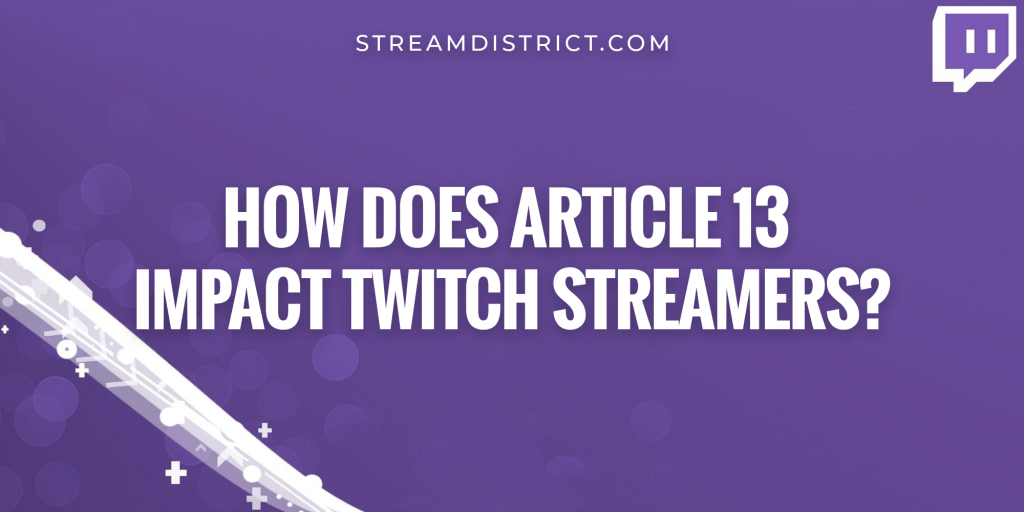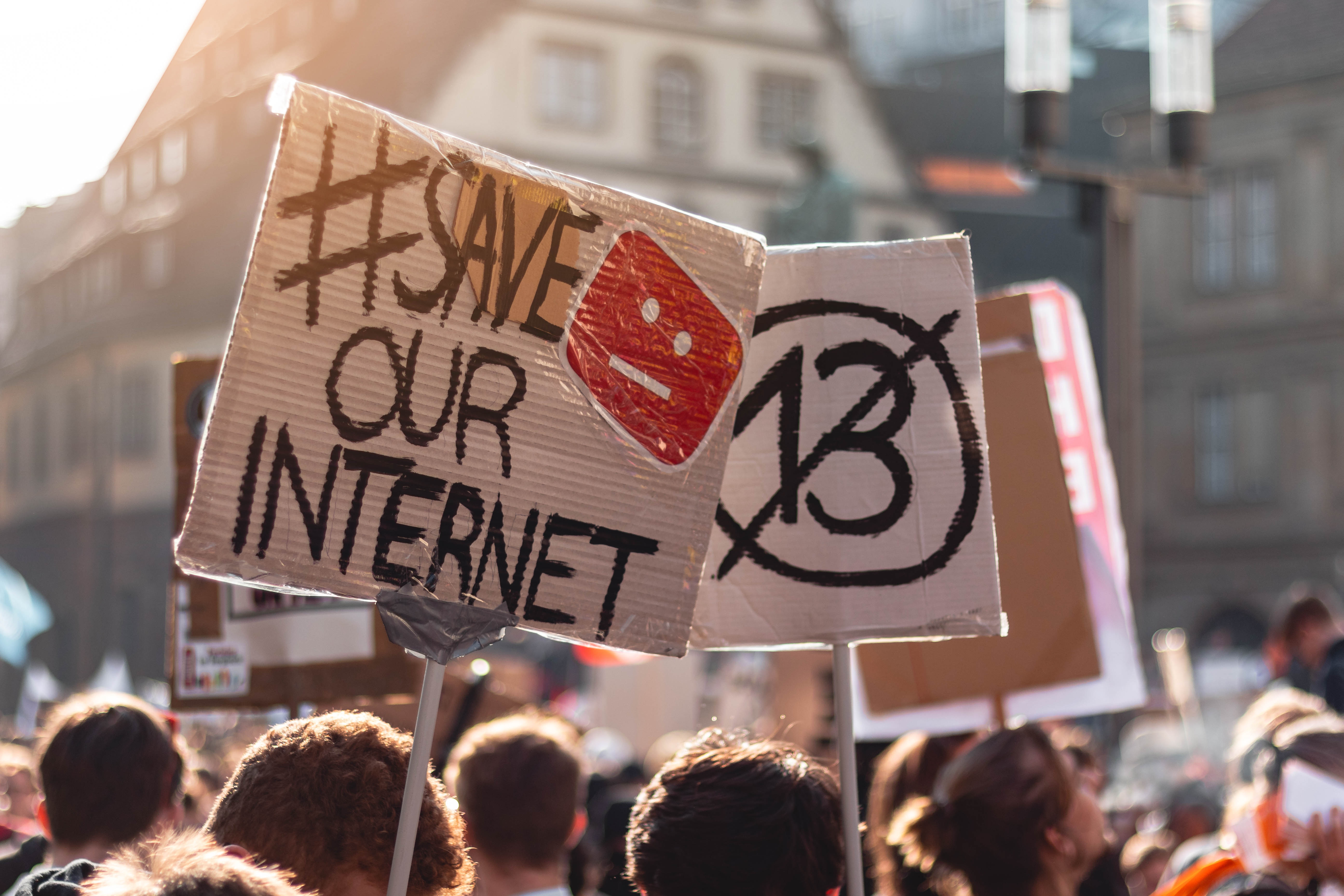Thirteen is a number that in many cultures and throughout history brings a lot of doom, and for a few; bad luck. For us – content creators – it also seems to be an unlucky number filled with doom and troubles.
On the 26th of March, 2019, the European Parliament voted to approve an European Union Copyright Directive, also referred to as “Article 13”. This copyright directive was designed to protect the traditional media and music industry, but fails to understand new media and the internet culture. This introduced a lot of heavy online changes for European content creators.
Along with Article 13, the Parliament also voted on two other directives, Articles 11 and 12.
What is the European Union Copyright Directive?
Under this copyright directive, websites like Twitch will be required to pay content creators for using pieces of their content on their site or face copyright infringement. This means the websites and online communities will pay the price of copyright fraud, and not the actual user who broke the copyright law.
Since Twitch wants to avoid breaking the new law (and potentially pay a lot of fines), they already confirmed that they’ll have to impose restrictions on European users. While no one knows the full extent of these restrictions, it could mean Europeans will be blocked from accessing certain channels.
The link tax: article 11
In short the ‘link tax’ proposes that online services should be banned from linking to news outlets on their platforms unless they have a license which allows them to do so, or unless it’s shared by individuals.
This article gives publishers the right to ask for paid licenses when another online platform wants to share their stories. However: it’s not specified if this impacts personal blogs with a big audience, RSS feeds, bigger Facebook pages, etc.. as well.
Filtering sports away: article 12
Due to Article 12, no one but the organiser of a sports event will have the right to make available (publish, share, present), reproduce or record it. This means you would be breaking the copyright law if you take a snapshot (picture, film, or soundclip) while attending a sport event.
This potentially means you won’t be able to create a vlog about an event you’re attending, you won’t be able to take a selfie with your favorite MMA athlete, you won’t be able to document tifo’s at football matches, and you won’t be allowed to share a video of that epic snowboarding fail.
The upload filter: article 13
This article is the biggest concern for most, since it – in brief – means that whenever you want to share a piece of content on the internet, it will need to be accompanied with a copyright license from the owner or creator.
If for example, someone was to post a Ready Player One meme on twitter, he would owe Warner Bros money for using their copyrighted content. Twitter should have checked this (by asking for a copyright license) before the tweet is actually posted. In case the tweet was published, without such a license twitter would been responsible and would have to pay a penalty.
This means websites like Twitch will have to create a system of upload filters to automatically ‘scan’ – or maybe even hire people to manually scan – through all the submitted content to look for copyrighted material and either get rid of it or pay the person that it belongs to.
Twitch actually already has such a copyright system, that automatically scans and discovers copyrighted songs in “Video on Demand”-footage (past streamed content). But in this case, they’ll need to be able to analyse every type of content that is present on the internet; audio, text, photos, livestreams, memes, and more.
The danger in Article 13 is the fact that it’s encouraging websites to create censorship machines that surveils every piece of content that will be uploaded, and might – depending on its filters – censor your content. And let’s be honest – with more than 7.6 billion people on planet earth – what are the chances that you’re going to post something that someone has said before?
When will this Copyright Directive go into effect?
If the usual timeline for directives is followed, it should be fully ratified by 2021. During that time, it’s possible for amendments to be made.

